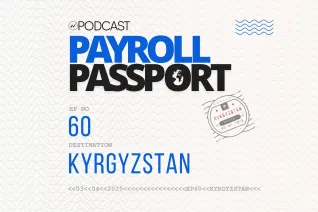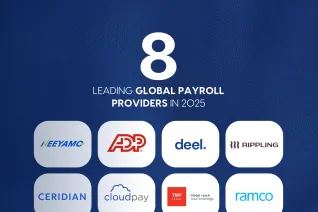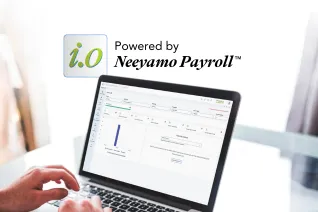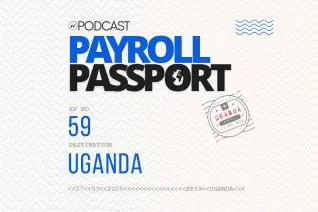Country Spotlight: Employer of Record in Egypt

“Land of pharaohs and pyramids, where ancient wonders whisper tales of a civilization's grandeur.”
A crown that only one country in the world wears.
Boasting a strategic location at the gateway of the Middle East and Africa and a rapidly growing economy, Egypt, the gift of the Nile, is an attractive destination for global businesses seeking expansion opportunities.
However, navigating the complexities of local employment regulations can be a daunting task, especially for companies without a legal entity in the country. This is where an Employer of Record (EOR) solution comes into play, offering a seamless and compliant way to hire employees in Egypt.
Here’s everything you need to know about Egypt’s employment landscape:
Mummy’s Time Off: Exploring Parental Leave
Egypt's labor law is designed to protect the rights of hired employees and ensure fair treatment in the workplace. One of the key provisions is the entitlement to paid sick leave, which allows employees to claim up to 6 months of paid time off by submitting a medical certificate. During the first 90 days of sick leave, the employee is entitled to 75% of their salary, followed by 85% for the subsequent 90 days.
Maternity leave is another significant benefit. Female employees who have contributed to social insurance for the past 10 months are eligible for up to 3 months of maternity leave for each child, with a provision of 75% of their last salary. Additionally, upon returning to work, new mothers are entitled to nursing breaks or a combined hour each day for 24 months after the date of birth.
Tune In: Payroll Passport Ep. 04 Egypt
For organizations with over 50 employees, mothers are entitled to 24 months of unpaid leave for each child. While flexible working hours for employees with dependents are not mandatory, many employment contracts stipulate such arrangements.
Employers with more than 100 employees are required to provide an in-house nursery or arrange for nursery care for their employees' children until they are old enough to attend school.
Desert Downtime: Other Leave Entitlements
Egyptian employees also receive several other types of leave, as specified in their employment contracts. After 6 months of service, employees receive 21 days of annual leave, with those over 50 or employed for more than 10 years receiving 30 days.
Employees can also avail paid study leave. While the duration of study leave is not specified under law, it can be discussed under collective bargaining agreements.
Apart from this, Muslim civil servants who have completed 5 continuous years of service are entitled to 1 month of paid leave for religious pilgrimage duties or visiting Jerusalem, granted only once during their service period.
For temporary disabilities, employees receive 100% of their wage from the first day of injury until they are cleared to return to work or declared permanently disabled.
Of Pyramids and Paychecks: Minimum Wage and Overtime
Effective from January 2024, Egypt has a private-sector minimum wage of 3,500 EGP per month.
The standard working hours in Egypt are eight hours per day. Employees required to work above that are entitled to receive their regular rate of pay in addition to 35% for overtime worked during daylight hours and 70% for overtime worked at night. The daily cap for overtime is two hours.
Employees working on weekends must be paid double their pay rate and given another day off, while those working during their vacations also receive double pay.
A Secure Tomb: Social Security Contributions
Egypt has a mandatory social security system to which both employers and employees contribute. This system provides benefits such as paid sick leave (up to 180 days with a portion of the salary covered), maternity leave (up to 3 months for childbirth with social security contributions in the past 10 months), unemployment benefits (up to 28 weeks upon dismissal, subject to conditions), and pension income after retirement.
While the labor law does not directly address health insurance, Egypt has a separate public health care system funded by social security contributions.
Also Read | Country Spotlight: Payroll in Egypt
Etched in Stone: Employment Contracts and Taxes
Employment contracts include details such as the names and addresses of the employer and employee, job title, description, type (full-time/part-time), employee qualifications and social security information, salary, and benefits. Although not mandatory, details like contract duration and confidentiality clauses are recommended.
Reminder: Egyptian Employment Contracts are mandated to be in Arabic!
Regarding taxes, Egypt has an individual income tax that applies to the total net income of residents or income earned in Egypt for non-residents. The country uses a progressive tax system with several brackets, and the tax rate increases as income rises. The annual tax exemption is EGP 15,000 for both residents and non-residents.
Employers typically withhold income tax from employees' salaries and remit it to the Egyptian tax authority. Additionally, employers are responsible for paying corporate tax (a flat rate of 22.5% on total annual revenue), value-added tax (VAT) of 14% on most goods and services, and social security contributions (around 18.75% based on a salary range).
Navigating through the Nile Valley
While the Egyptian labor law and employment regulations aim to protect employees' rights, navigating the complexities can be challenging for businesses without a local presence.
An EOR provider like Neeyamo can serve as the legal employer of record, taking care of all the local employment requirements, including payroll taxes, social security contributions, working hours, and absence management, while ensuring compliance with local laws.
With Neeyamo's Global Work solution, powered by its Native Global Payroll Tech Stack, businesses can focus on their core operations while the EOR partner handles the intricacies of employment in Egypt, ensuring a smooth and seamless experience.
Reach out to the experts today.
Latest Resources
Stay informed with latest updates
If you're curious and have a thirst for knowledge pertaining to the HR, payroll, and EOR universe, don't miss out on subscribing to our resources.















